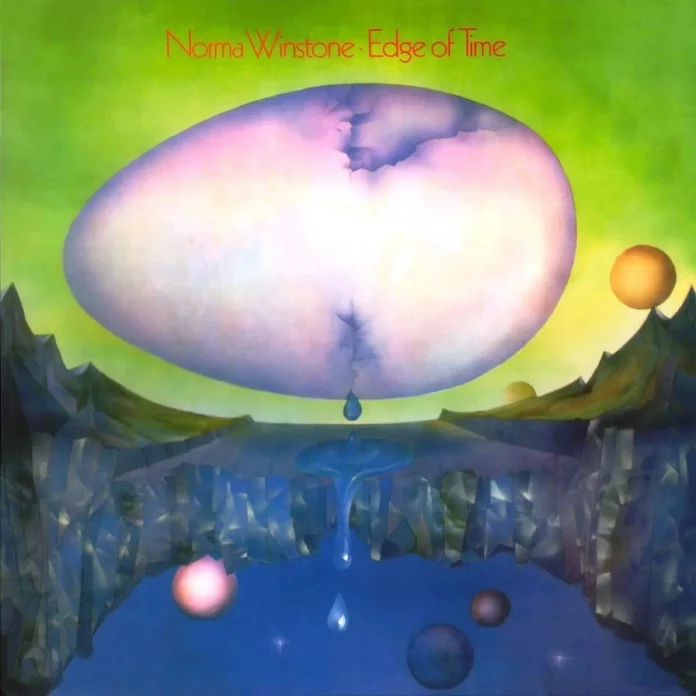It’s hard to imagine anyone else singing with the school of musicians represented on this record. Norma Winstone seems to have copyrighted her role, and her delicate, lightweight sound packs a musical punch which is very deceptive. Having chosen to work with such aggressive players as Skidmore and Co. she has to be prepared to take them at their own game. This she does with great success, and this album, despite the drawback that Norma doesn’t communicate as emotionally as the horns, is the artistic success that one would expect it to be.
On the other hand, when she chooses to work with the smaller combinations she is so dominant that the drawback disappears and, helped by some brilliantly consistent piano from John Taylor, she interprets this host of good original material quite beautifully. Paradoxically it is the tracks with the larger groups that appeal to me. The eight-minute-plus Erebus, for instance, builds into a red hot whirlwind of voice and band and Miss Winstone, probably more than any other singer I can think of, really uses her voice in instrumental fashion.
The LP bursts with contrasts, right from the very opening fragile duet between voice and Rutherford’s trombone. The two improvise together over Taylor’s electric piano and, although on first hearing the result is startling, it takes on perspective when the rest of the band enter to state simple phrases before Norma and Taylor take off alone. This is one of three excellent compositions by the pianist.
John Warren’s Perkins Landing is a lovely theme beautifully sung and with a magnificent trombone solo from Griffiths which could have gone on for ever as far as I’m concerned. Enjoy This Day is once again notable for the backing from the band, here as elsewhere using relatively uncluttered and simple phrases to allow the voice maximum room to manoeuvre. Perhaps this is the key to Miss Winstone’s art. Her voice is comparatively small, and this puts a concentration on her dexterity. Taken with a quite unique capacity for modern jazz, this makes her the most prodigious vocal talent to emerge since the appearance of Cleo Laine and Annie Ross, neither of whom, incidentally, could succeed in this field.
A record at first strange which grows very quickly on the listener. Miss Winstone is responsible for all the lyrics and includes amongst her arrangers John Surman (Erebus) and Neil Ardley (Song Of Love). The personnel layout below was the work of Richard Williams.
Discography
(a) Edge Of Time; (b) Perkins Landing; (c) Enjoy This Day (21½ min) – (d) Erebus (Son Of Chaos); (e) Songs For A Child; (f) Shadows; (g) Song Of Love (22½ min)
Norma Winstone accompanied by: (a) Henry Lowther (flg-h); Paul Rutherford, Malcolm Griffiths (tbn): Alan Skidmore, Art Themen (ten); Frank Riccotti (vib); John Taylor (elec-pno); Chris Laurence (bs); Tony Levin (dm).
(b) Lowther (tpt); Kenny Wheeler (flg-h); Griffiths. Chris Pyne (tbn); Rutherford (euph); Themen (fit); Mike Osborne (clt); Skidmore (ten/sop); Taylor (pno); Laurence (bs); Levin (dm).
(c) Wheeler, Lowther (tpt); Pyne, Griffiths (tbn); Rutherford (euph); Osborne (alt); Themen (ten); Skidmore (ten/sop); Taylor (pno); Laurence (bs); Levin (dm).
(d) as (c) plus Gary Boyle (gtr). Skidmore also plays fit.
(e) Themen (sop); Taylor (pno).
(f) Lowther (tpt); Taylor (pno); Laurence (bs); Levin (dm).
(g) Lowther (tpt); Skidmore (lit); Themen (bs): Riccotti (vib); Laurence (bs).
(Argo ZDA 148 – £2)
















